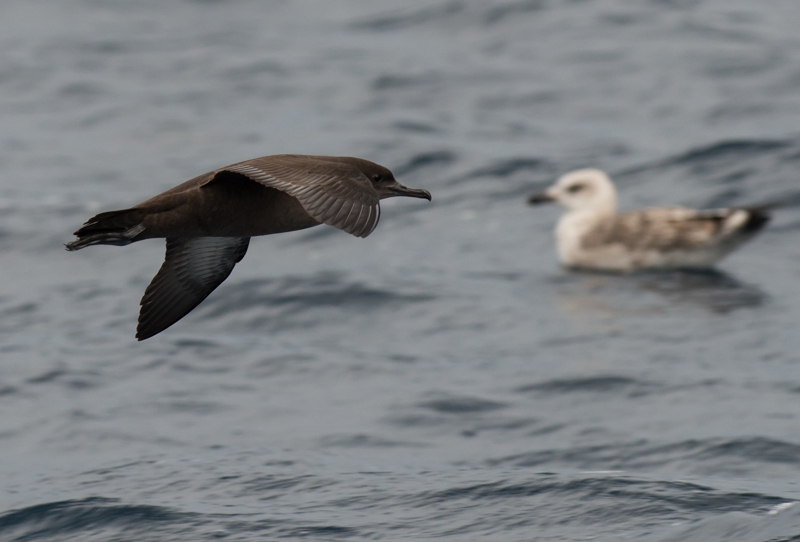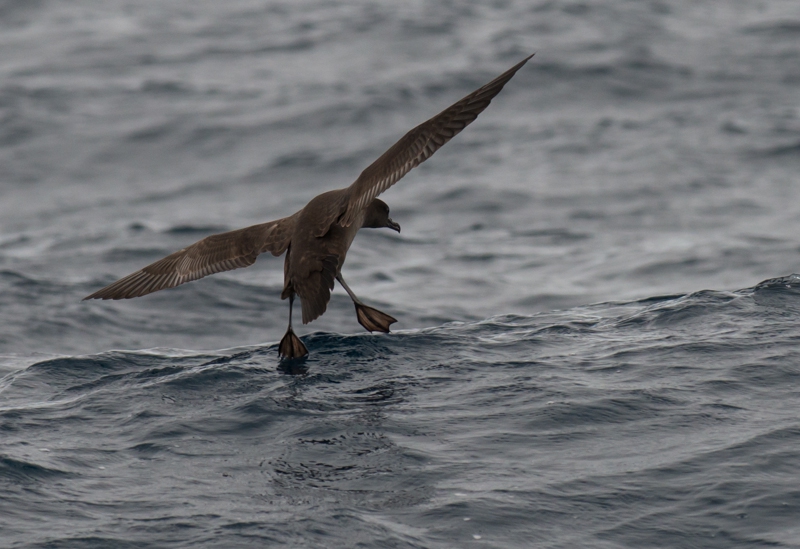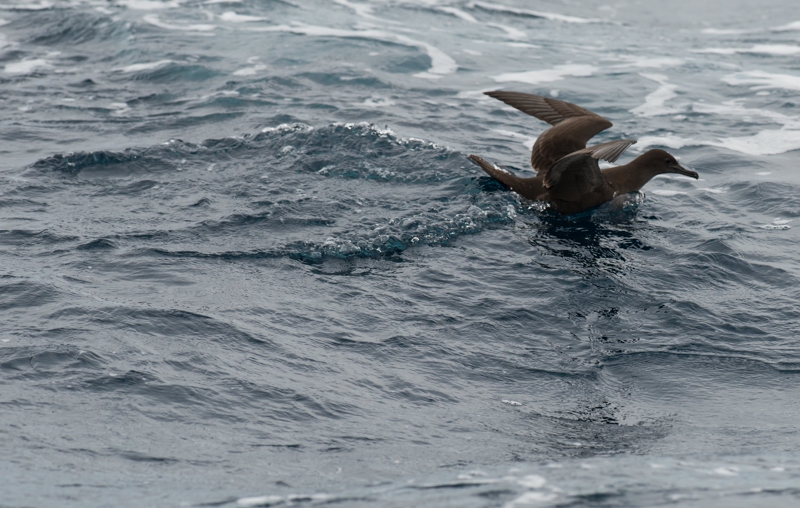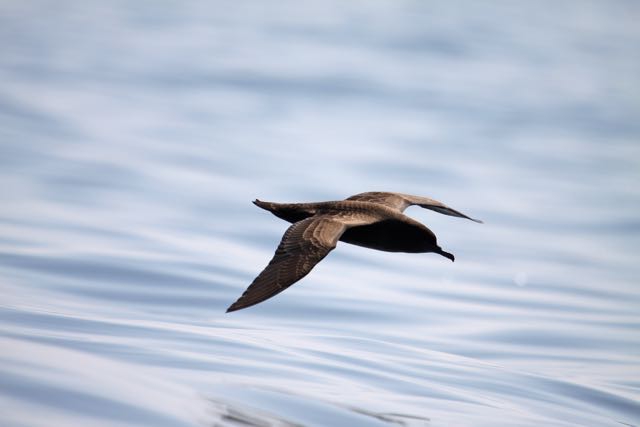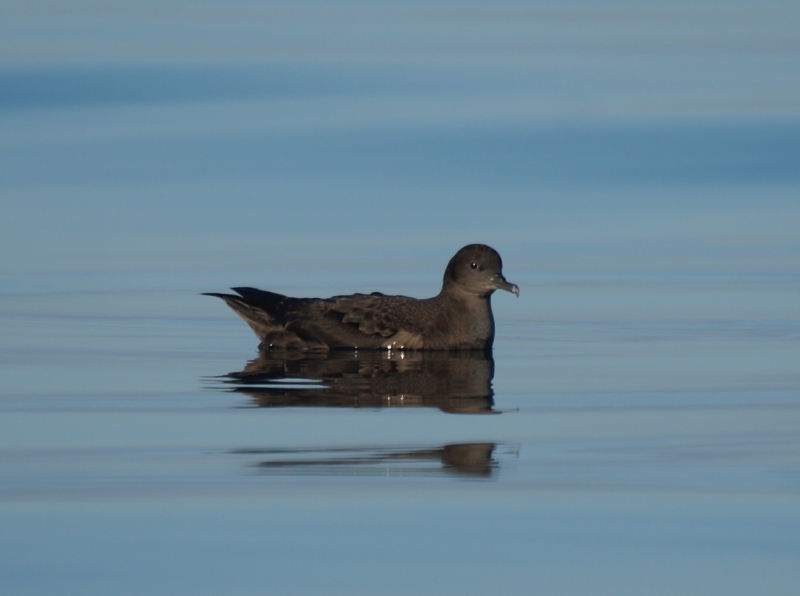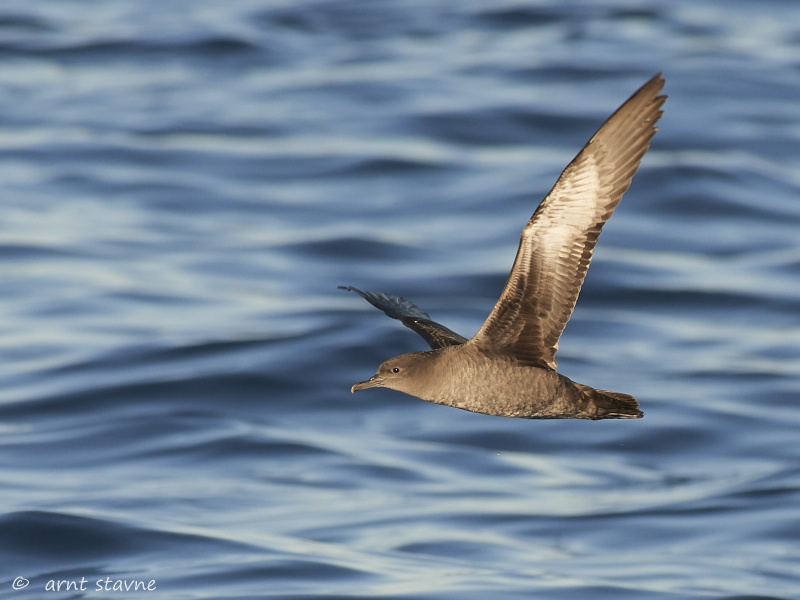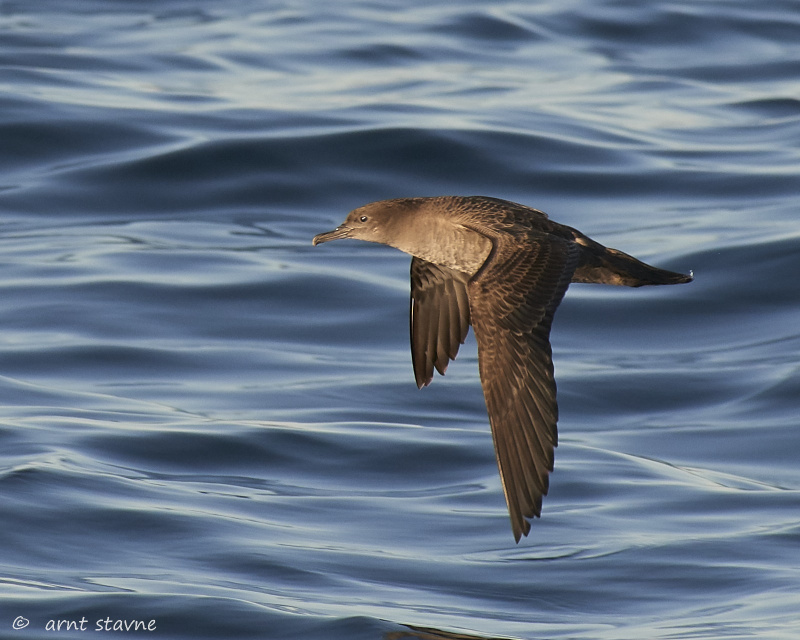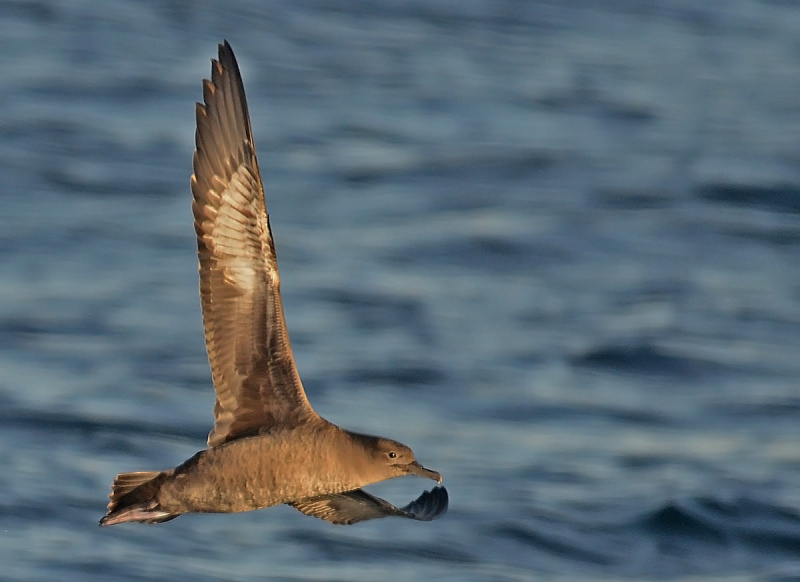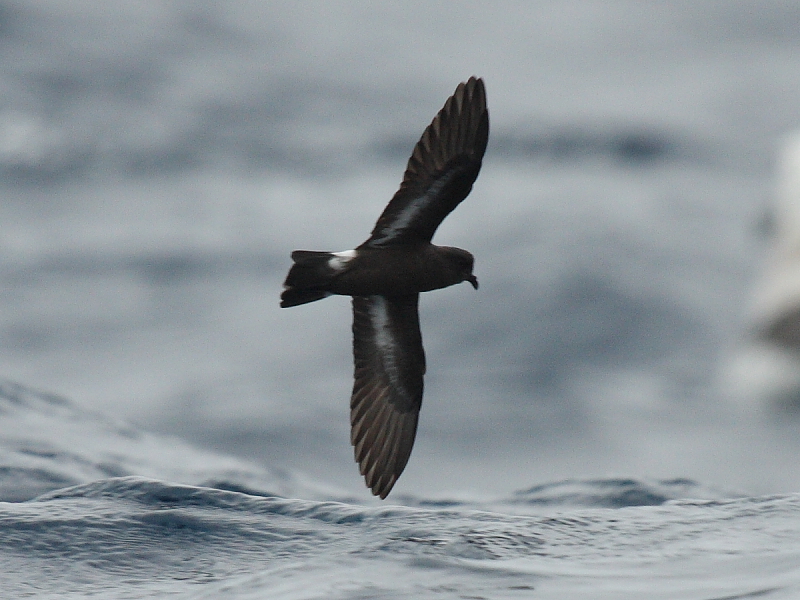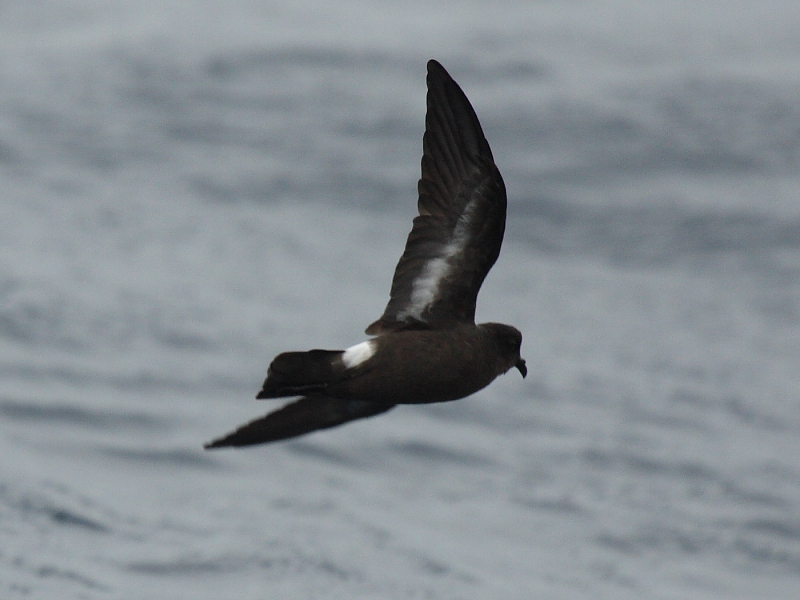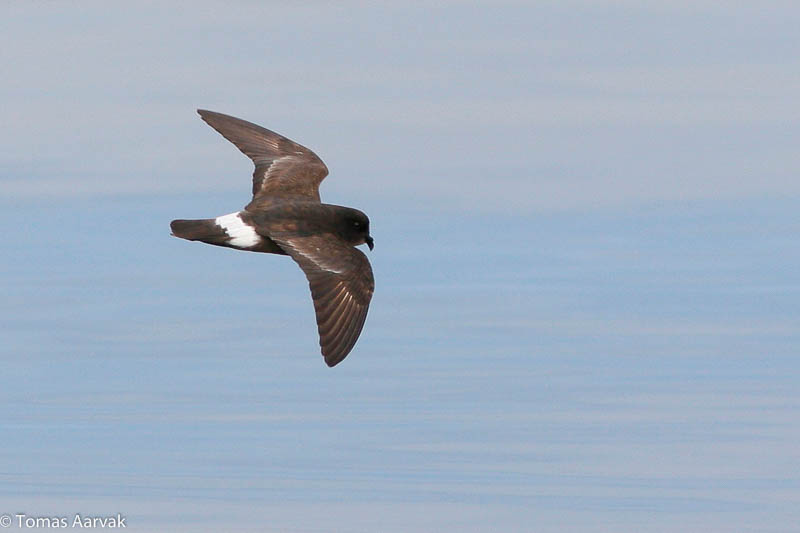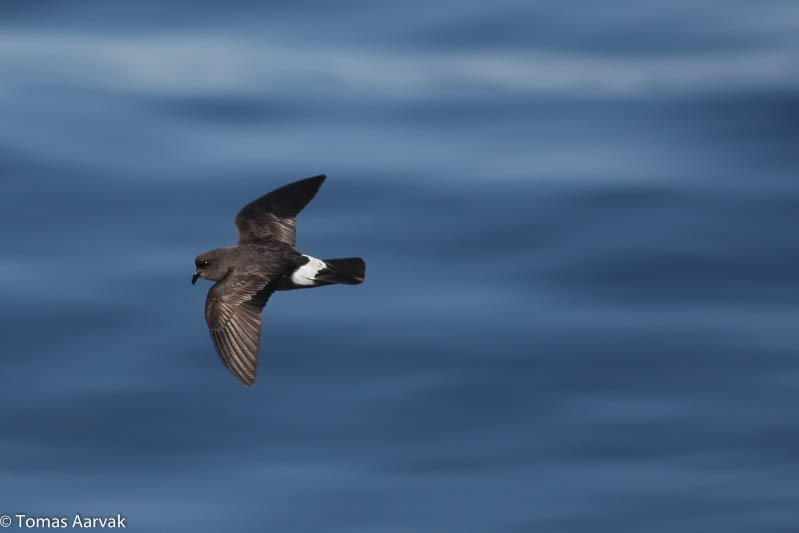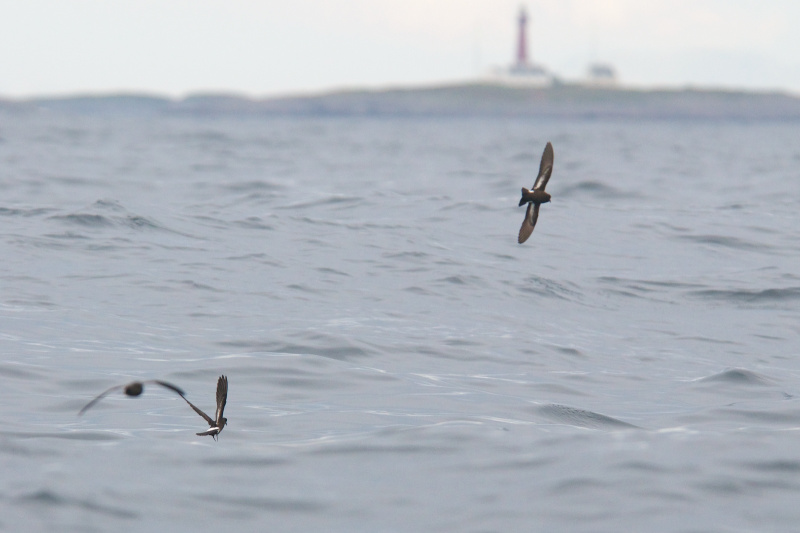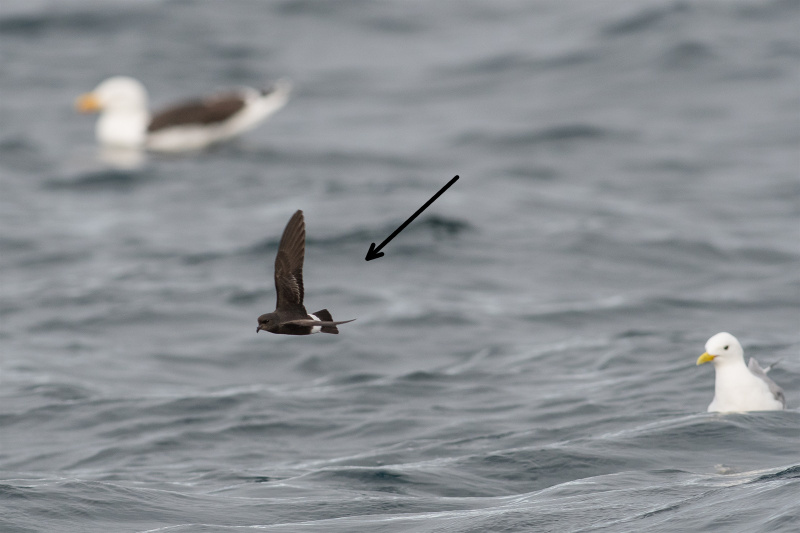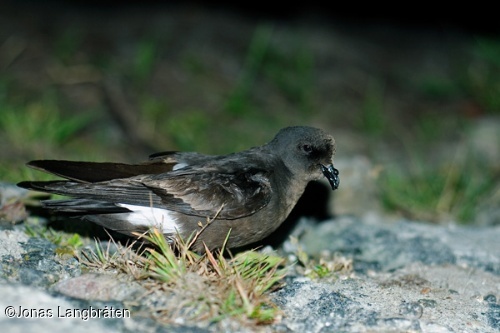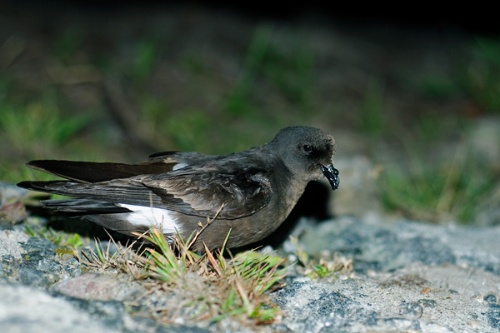Sooty Shearwater (Ardenna grisea)
Storm Petrel (Hydrobates pelagicus)
Dark-bellied, long-billed shearwater with small head and elongated body. Wings long, narrow and pointed, with pale patches/bands underneath framed in dark base colour of body. Flight fast and powerful. In strong winds hand held pointing slightly backwards. The pale underwing is clearly visible in good light, but the whole bird often seems completely dark. Only shearwater in the region with completely dark underparts, except from dark individuals of the much smaller, and short-winged, Balearic Shearwater. The latter also shows deeper belly and less deep chest. At long distance, and/or bad weather, Sooty Shearwater may be confused with Arctic Skua or even young Gannets. Differs from Gannets by size, shorter neck and no white rump patch. Told from Skuas by bursting series of stiff wing-beats with alternating glides.
Sound:Mostly heard at breeding ground. A peculiar, rhythmic, coarse moaning, with a disyllabic attack, followed by a deeper, cooing "in-breath".
Song:
Distribution:
Wikipedia: map (se also Xeno-canto below)
Ecology:Birdlife ecology
Links:
Observation.org Latest observations
Image search Flickr NB! May give other species
CCCC-photo:pablo_caceres_c, Licence,Link.
CC-photo:Jon. D. Anderson, Licence,Link.
Sounds:Creative Commons,www.xeno-canto.org,sjonnoh,http://creativecommons.org/licenses/by-nc-sa/4.0/
Rarely seen, small petrel. Compact with shorter wings and tail, and blacker plumage than Leach's Storm-Petrel. Squared, unforked tail. White patch on upper tail coverts that reaches down on each side, with more square-cut edges than in Leach's. Also lacks the grey upper wing-band of latter, but shows white stripe on underside of wing. Flight-pattern bat-like with quick fluttering wing-beats and less powerful, and only short, gliding sequences. Sometimes patters with feet on the surface or rests on water. Visits breeding ground at night.
Sound:Heard at breeding ground. Dry, cyclic, rattling and cooing, interrupted by deeper nasal moaning or a higher pitched "kee-ee-kee", with emphasis on second syllable.
Song:
Distribution:
Wikipedia: map (se also Xeno-canto below)
Ecology:Birdlife ecology
Links:
Observation.org Latest observations
Image search Flickr NB! May give other species
CC
 English
English Albanian
Albanian
 Armenian
Armenian
 Bulgarian
Bulgarian
 Catalan
Catalan
 Croatian
Croatian
 Czech
Czech
 Danish
Danish
 Dutch
Dutch
 Finnish
Finnish
 French
French
 Georgian
Georgian
 German
German
 Greek
Greek
 Hungarian
Hungarian
 Italian
Italian
 Latvian
Latvian
 Lithuanian
Lithuanian
 Macedonian
Macedonian
 Norwegian
Norwegian
 Polish
Polish
 Portuguese
Portuguese
 Romanian
Romanian
 Russian
Russian
 Sami : Lule sami
Sami : Lule sami
 Sami : North sami
Sami : North sami
 Sami : South sami
Sami : South sami
 Scientific names
Scientific names
 Serbian
Serbian
 Spanish
Spanish
 Swedish
Swedish
 Ukrainian
Ukrainian


